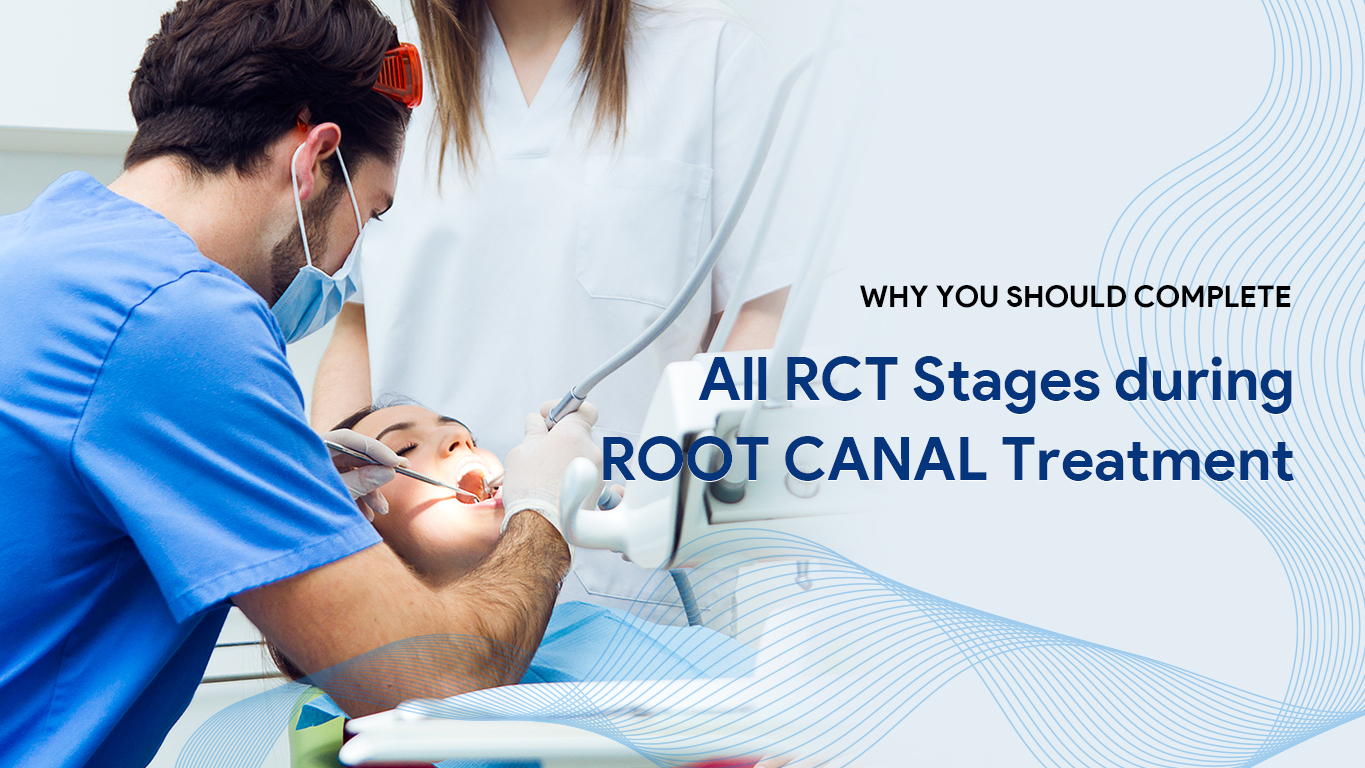Why You Should Complete All RCT Stages during Root Canal Treatment?

When undergoing root canal treatment, most people would expect to only deal with the dentist and the anesthesiologist. However, there are many more people that must be involved in order for the treatment to go smoothly and safely. Incomplete root canal treatment (IRD) is a very common problem, and it can have serious consequences. In the article, we will explore why IRD is such a problem and what you can do to avoid it. Benefits of completing all RCT stages during root canal treatment
There are many benefits to completing all RCT stages during root canal treatment. Completing all RCT stages means that the dentist has completed the entire process of removing the infected pulp and restoring healthy tooth structure. This ensures that the patient receives the best possible care and maximizes the chances of a successful outcome.
1. The patient will receive optimal care
Completing all RCT stages ensures that the patient is receiving the best possible care. By completing all of the steps in the root canal treatment process, the dentist can identify and treat any potential problems early on, which leads to a better overall outcome for the patient.
2. It increases the chances of a successful outcome.
If a dentist does not complete all RCT stages, there is a higher chance that infected pulp will remain in the tooth and cause future problems for the patient. By completing all of these steps, it becomes much more likely that infection will be eliminated completely and that healthy tooth structure will be restored. This results in an improved quality of life for the patient and an increased likelihood of success when it comes to future dental treatments.
When should I complete each stage?
• Complete Stage 1 (Preparation)
The first step in any root canal treatment is preparation. This includes the removal of any infected or discolored tissue and cleaning of the surrounding area with an antiseptic solution. If there is evidence of infection, antibiotics may also be prescribed.
• Complete Stage 2 (Operative Procedure)
During the operative procedure, the dentist will remove the affected tooth using a drill and surgical tool. The aim is to leave as many healthy teeth as possible behind while removing the infected section. The hole that has been drilled will then be filled using filling material to avoid any other infection from affecting the teeth as well as restore the structural and functional integrity of the tooth.
• Complete Stage 3 (Post-operative Care)
After surgery, your dentist will usually prescribe pain relief medication and a mouth guard to protect your teeth against further damage. You should visit them regularly for check-ups and dental cleanings to ensure that there are no complications arising from your treatment.
• Possible risks associated with not completing each stage of root canal treatment
There are several possible risks associated with not completing all RCT stages during root canal treatment. These risks can occur when the dental restoration is not appropriately fitted and sealed, and when the restoration is not properly maintained, the tooth can become infected. In some cases, incomplete root canal treatment may also lead to further damage to the tooth and surrounding structures.
Bottom Line
If you are considering undergoing any type of root canal treatment, it is important to complete all stages of the RCT. This includes the preoperative assessment, the surgery itself, and post-operative care. By completing these stages in a systematic manner, you can ensure that your Root Canal Treatment is as successful as possible. If you have any questions or concerns about your Root Canal Treatment, please do not hesitate to contact or visit us at Springvale Dental Clinic for more information.



